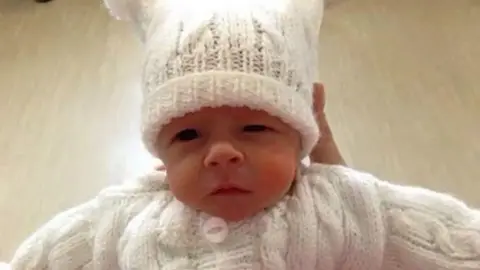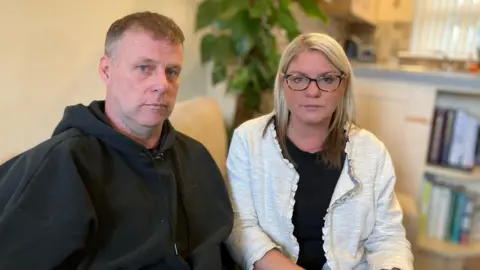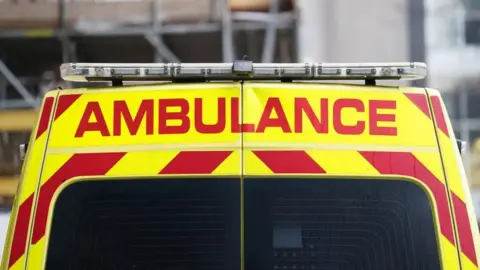Operator failed to send ambulance to baby, inquest hears
 PA Media
PA MediaA 111 call handler referred the parents of a premature baby to a GP rather than dispatching an ambulance due to "external pressures", an inquest heard.
Two-month-old Ben Condon died in April 2015 after developing a respiratory illness.
A second inquest into his death, held at Avon Corner's Court, heard the call handler had incorrectly recorded answers about whether he was conscious and alert.
University Hospitals Bristol and Weston NHS Foundation Trust have previously admitted their failure to give Ben timely antibiotics contributed to his death.
An inquest originally recorded his death as being caused by acute respiratory distress syndrome, human metapneumovirus and prematurity, which was quashed by the High Court, after new evidence emerged.

Ben was born at 29 weeks at Southmead Hospital on 17 February 2015 and then went home with his parents on 7 April to Weston-super-Mare, the new inquest heard.
He soon developed a cold and runny nose and his father Allyn Condon rang the non-emergency 111 service at around 18:00 GMT on 10 April.
The call handler referred Ben for an out-of-hours telephone call-back appointment with a GP within two hours rather than sending an ambulance.
The court heard that by 19:45 GMT, when Mr Condon and his wife Jenny had not received the call from the GP, they took their son to Weston General Hospital.
Reading from a written statement, Assistant Coroner Robert Sowersby said Care UK, which runs the 111 service, apologised to the Condon family and the advisor was taken off calls for nearly three weeks and received further training.
"Care UK identified in the root cause analysis that the health advisor failed to actively listen and failed to accept the responses provided, and there was a failure to select the appropriate pathway responses," Mr Sowersby said.
He added: "Cognitive bias was a contributory factor in the response measure in that the health advisor was mindful of the external pressures regarding ambulances being called out and moved towards, rather than away from, a GP outcome."
 PA Media
PA MediaAt the beginning of the inquest, Mr Sowersby said evidence would focus on the care Ben received after being transferred to Bristol from Weston in the early hours of 11 April until he died six days later at Bristol Children's Hospital.
Ben's condition worsened and he was prescribed antibiotics at 11:00 GMT, but these were not administered until 20:00. By then he had suffered a cardiac arrest.
He died shortly after 21:00, after suffering a second cardiac arrest.
Mr Sowersby said he would be hearing evidence of "whether there were any culpable human failings during the course of that care".
He explained the evidence would also consider the management of Ben's temperature and ventilation, his blood tests and tests for infection, the administration of antibiotics and the response to his deterioration on 17 April.
The inquest continues.
Follow BBC Bristol on Facebook, X and Instagram. Send your story ideas to us on email or via WhatsApp on 0800 313 4630.
